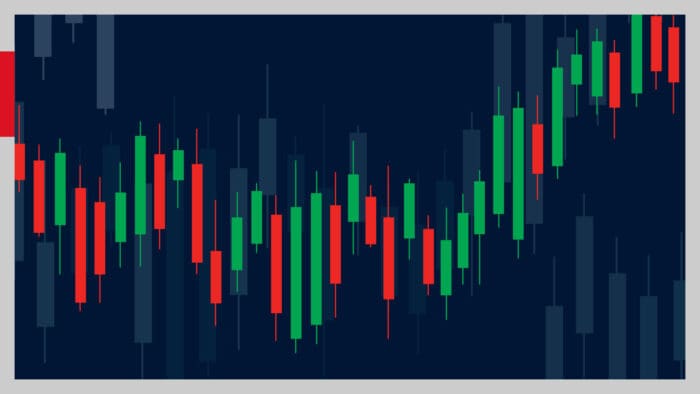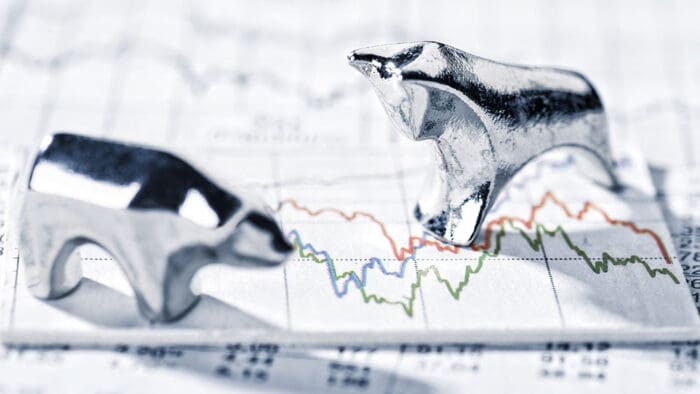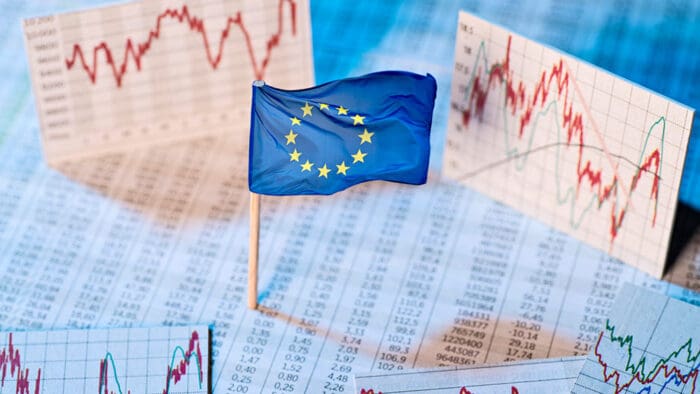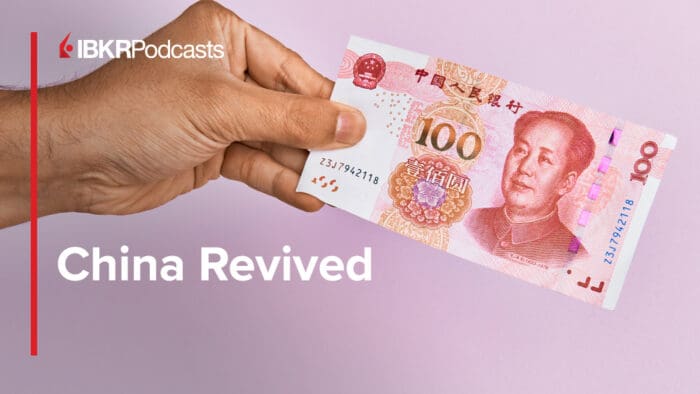This podcast episode features Andrew Wilkinson and Dr. Xiaolin Chen, who discuss the recent government stimulus in China and its implications for the economy. Dr. Chen highlights the significance of the timing of the stimulus, suggesting that it aligns with the Federal Reserve’s actions, allowing the People’s Bank of China to synchronize its interest rate policies with the U.S.
Summary – IBKR Podcasts Ep. 207
The following is a summary of a live audio recording and may contain errors in spelling or grammar. Although IBKR has edited for clarity no material changes have been made.
Andrew Wilkinson
Welcome to this IBKR podcast episode in which we’re going to reflect on the state of the Chinese economy. And the market’s reaction following the government stimulus announced on September the 24th, about six weeks ago. And joining me is Dr. Xiaolin Chen, Head of International Business at KraneShares in London. Welcome Dr. Chen, how are you?
Xiaolin Chen
Thank you so much for having me on your show.
Andrew Wilkinson
You’re very welcome back to the show. I always enjoy having you as a guest here. So tell me, why did the government act and was there any significance in terms of the timing?
Xiaolin Chen
I say it could be a bit of a coincidence, but I do think Fed action in September offers quite a lot of convenience for PBOC to say, one, we are aligning our interest rates policy now with United States. Finally, after Chinese regulators been implementing Easing policy for almost over seven quarters.
Finally, that kind of relief of running different directions of our interest rates versus U.S. is off the table now. So it effectively offers a lot of convenience. Also long overdue for the Chinese policy maker to introduce in the large scale to really help the economy from bottom up.
This time around, the touch base on mortgage, real estate, as you would expect. The difference is this time of the policy announcements, was two things, one, this time around they provided almost immediate disposal income back to the household. What do I mean by that? Is this mortgage risk cuts is taking a immediate effect. That’s going to benefit 50 million households to go and remortgage your mortgage today. That’s going to save the household nearly ¥150 billion interest they’re going to pay every year. So that’s the immediate income back to the household. Second, really the tone of the policymakers delivering this kind of message.
I remember watching this conference. They did a press conference by the governor of PBOC, Bank of China. Mr. Pan was saying we will do this equity swap program. By the way, that is you have equity, come forward, borrow money from me. The money can only buy equity. So that program is ¥500 billion, he said, to start with.
If it’s not enough, let’s do another round of ¥500 billion. If it’s not enough, let’s do another round of ¥500 billion. I have to be saying, for two decades of carving this market, this kind of a tone is unprecedented. They don’t speak in that way. So in that instance of the scale, the impact to household, helping on consumer side, and also how determined the policymakers want to make this happen.
It’s almost reminding me, remember the moment when Mario Draghi says, we do “whatever it takes”? This is China’s moment of “we do whatever it takes” to get the economy back on track.
Andrew Wilkinson
So given that backdrop, it seems that there was a sense of “it’s different this time”. Can you describe the reaction to the announcement?
Xiaolin Chen
Market has been waiting for almost this bazooka moment, if it’s policy or money, whatever you want to name it, okay? Finally, that bazooka moment arrived with this announcement. You are absolutely right. Market welcomed the action, the tone. And I particularly welcomed the very efficient execution. When there’s a policy you announced, it could take months for it to actually take effect.
The government literally announced them in September. The first round of the swap program started to kick off five days later.
Actually very planned, coordinated to really get it rolled out, seriously. So I’m very impressed with how quickly that policy got rolled out, an immediate effect with the swap program get kicked off.
That’s differentiated from all the past episodes when they tried to help the economy. Market gave a huge welcome to that. Market rebounded sharply for people who had a long-term strategic allocation to China, benefited from the immediate jump ’cause market is really way overdue with valuation, performance, everything.
So market some of the fund like KWEB is playing consumer, which you can understand the policies helping on consumer. All the times when market was reacting positively to these announcements gone up at 30, 40%, which outperformed the broader market. So yes, market welcomed the announcements, reacted on top of it, still very far from even this long-term average.
Andrew Wilkinson
Tell us about the impact on specific sectors. Where was the impact of the stimulus felt most?
Xiaolin Chen
Great question. This is really the staging, too, to say, listen, you did this announcement broader beta ready. If you remember, I think David Tepper from the hedge fund got interviewed to say, what’s your own China? He said everything, which is correct at that point. It’s a broader beta ready, anything you own, gone up.
But the staging, too, is exactly your question, which is perfect. It was like now the broader beta ready has happened, what’s the next stage? Stage two would be, one, which sector the policy will help the most, and which sector has the most disadvantage? Because of the macro factor is driven to have the stock underperform, and now has the most fundamental value on the upside.
That would be the consumer sector, e commerce, internet, obviously don’t get to hang out with the Internet name, and a lot of the Internet companies in China are e-commerce companies, consumer companies. They offer apps for people to order groceries, technologies for people to order taxis, booking doctor appointments, it’s all called internet company, but it’s really core technology for Chinese people’s daily life.
Consumer consumption is the primary focus of Chinese policymaker to help on insurance policy. 40% of China GDP will be contributed by consumption. The government wants that to be stabilizing or catch up with developed market, will be double, nearly double that.
So that’s why they focus on rebalancing the economy, helping the household, helping the consumer. So we do think this time rally that consumption, consumer, e-commerce sector will lead the rally continuously for a long period of time until that’s become a very mature driver for Chinese economy.
Andrew Wilkinson
Can you talk a little bit about onshore versus offshore markets and especially in the context of the recent addition of shares in Alibaba via the southbound connect?
Xiaolin Chen
It’s another availability of a tool for two things. One, Alibaba is a classic example, contributed by a billion of Chinese consumers on a daily basis to their revenue. But these stocks are listed in the New York Stock Exchange. Investors in China would not be able to open an account in the United States to buy that stock very naturally.
You are contributing to the growth but you’re not benefiting from any of the stocks purchased whatsoever. So now because of a certain discussion on ADR, you can name it. Or the company themselves willingness to say, you know what? We do need a secondary listing.
So Alibaba initiated that action to say, you know what? We’re going tolease back into Hong Kong as our offshore listing. When that happened, investors domestically said, you know what? I can literally buy that name and understand what their business model is, because I contribute daily.
That stock obviously meets all the technical requirements and not become a qualified connect stock. That means anybody in China doesn’t need to open an account overseas, doesn’t need to open an account offshore, then can buy them from Stock Connect. That made the ownership of the stock shoot up.
Just use Tencent. Tencent’s ownership by domestic investors is just shooting up in double digits. So that’s one example. That’s Alibaba and that’s Russia now behind investors buying into those stocks. Also another trend happening is Chinese people are rebalancing away their financial assets from those traditional tangible assets to financial products. Financial product used to be 10-20% of overall financial assets, equity bonds now have become double that percentage.
And the stocks like Alibaba have become available onshore for them to buy, become a huge or popular choice for investors to buy. So I say it’s two ways. One, make Alibaba available to onshore investors. Also second, offering a diversification of investment toolkit for domestic investors in China.
Andrew Wilkinson
Some of the froth has come off the markets and I think this is a very good opportunity to discuss, to reflect, as I said at the outset, on the market, do you feel at all disappointed in hindsight? Or I guess the question is what is next for Chinese markets?
Xiaolin Chen
A couple of things. From policy, maybe. Start with policy. And if it’s an emerging country, I always say policy matters the most.
So policy now is very decisively to say we focus on consumer. I want them to do more. Okay, the last piece of the puzzle is physical. Government, what are you doing? What are you spending on? What are you initiating? What are you leading? I want to see more action on that.
And you will, because they concluded NPC, National People’s Congress, a few weeks ago, has said they’re going to issue more physical bonds, this and that, to spend on physical projects, which is a great start.
We want to see action. That is the last piece of the puzzle. We will, because they did say in their statement that there’s a lot of budget getting approved now and will be released shortly. So hopefully that’s going to complete the last piece of the puzzle. That’s one.
Second, there’s an economic working group, which every year, senior policymakers in China meet in December. They will review the economic results and what else to do. I hope they’re realizing the challenges faced externally and domestically and then making policy toolkit even more stronger.
Third would be resume to normal of the equity IPO market. How long have we not heard a great Chinese firm that’s going IPO worldwide?
June, when I attended Summer Davos in China, in Dalian. Dalian is a northeast city in China. They hosted Summer Davos this year in June. Jonathan Krane, who is our CEO, we literally went together. I attended one session, most selected, but it’s actually have quite a lot of people there listened to Premier Li, Chinese Premier Li’s, speech.
He was sharing the stage with Poland Premier and also Vietnam Premier, all on the same stage. In his 20 minutes of speech, he mentioned “innovation” 35 times. I think China need to show more decisive moves in those areas to support the weighted area to become more public.
We also met with Bonnie, who is the CEO of Hong Kong Stock Exchange. She literally told me this is the data, probably three, four months old. She has 110 good applications ready to go in IPO market in Hong Kong. She told us her counterpart, Anshuang in Shanghai, have 80. So if that’s in combination, you have close to 200 names to go to market. We want to see that. That is another sign to resume. The market is not pressing none of that. None of that.
Last one, and I will pause there, is share repurchasing. All these companies saying, listen, my valuation at a historical low, we have beautiful fundamental futures. As an investor, you say, show me your money.
And this is exactly what Alibaba been doing. Use Alibaba as an example. They say, you know what, we’re going to give some dividend back to the investor to reward them. Second, we’re going to keep the cash to buy our shares back. At the end of the repurchasing program, Alibaba going to shrink their stock by 14%, 1- 4.
So if 100 shares are outstanding, you’re going to be left with 86. This is another sign of corporate themselves to say, this is the bottom. The put has been activated. None of that has been properly rewarded by the market.
Andrew Wilkinson
And finally, I guess I should ask you for any thoughts on the outlook for Chinese companies, as a result of the election of President-elect Trump?
Xiaolin Chen
Good question because this is the question I get asked almost every day now on that. I think it’s a very valid concern. There’s policies announced and so on and so forth during the campaign till now the actual he’ll be resuming the office and how you going to actually implement it. The actual policy that you have to implement. I think there’s always some discrepancies between the two. We shall wait and see. That’s one.
Second, I always believe you got to agree with me on this is a terrible, double-edged sword. Okay? It’s not only to manage one side, the consumer in U.S., the corporates in U.S also get hurt at the same time. I hope that is going to be a negotiation discussion starting point as one.
I like to believe that the people surrounding Trump are all business persons. I like to believe we are business persons. We like to believe if you deal with people who are business oriented to do whatever is good for the business, whatever good for the corporates, then there’s a way to work together.
There’s a path to negotiate. There’s a path to agree.
During Trump’s first administration, they literally signed a deal with China to say, you buy my agriculture products, then I will allow such and such to happen. He’s still announcing his whole team, senior member team. I do hope that there will be a constructive path forward.
Elon Musk, he’s the biggest sponsor of his entire campaign. His Tesla has nearly 1/3 of the revenue from China. His experience in interacting with China is nothing but good. He wants to set up Tesla factory in China, in Shanghai. He talked to Premier Li. Back then Premier Li was the mayor of Shanghai.
He said, “I want to set up my factory from A to Z.” It was a few months, two or three months to make that happen. I think his experience in interacting with China, getting his business out and then working with the people has been nothing but good. So hopefully that means we could work on a constructive path on both sides.
Andrew Wilkinson
Dr. Xiaolin Chen, thank you very much for joining me. Dr. Chen is Head of International Business at KraneShares in London. Thank you for joining me.
Xiaolin Chen
Thank you.
Andrew Wilkinson
And don’t forget to the audience to subscribe to our podcast wherever you download yours from.
Disclosure: KraneShares
Content on China Last Night is for informational purposes only and should not be construed as investment advice. This material represents an assessment of the market environment at a specific time and is not intended to be a forecast of future events or a guarantee of future results; material is as of the dates noted and is subject to change without notice. This information should not be relied upon by the reader as research or investment advice regarding the funds or any security in particular.
This material may not be suitable for all investors and is not intended to be an offer, or the solicitation of any offer, to buy or sell any securities. Investing involves risk, including possible loss of principal.
This material contains general information only and does not take into account an individual’s financial circumstances. This information should not be relied upon as a primary basis for an investment decision. Rather, an assessment should be made as to whether the information is appropriate in individual circumstances and consideration should be given to talking to a financial advisor before making an investment decision.
Forward-looking statements (including Krane’s opinions, expectations, beliefs, plans, objectives, assumptions, or projections regarding future events or future results) contained in this presentation are based on a variety of estimates and assumptions by Krane. These statements generally are identified by words such as “believes,” “expects,” “predicts,” “intends,” “projects,” “plans,” “estimates,” “aims,” “foresees,” “anticipates,” “targets,” “should,” “likely,” and similar expressions. These also include statements about the future, including what “will” happen, which reflect Krane’s current beliefs. These estimates and assumptions are inherently uncertain and are subject to numerous business, industry, market, regulatory, geo-political, competitive, and financial risks that are outside of Krane’s control. The inclusion of forward-looking statements herein should not be regarded as an indication that Krane considers forward-looking statements to be a reliable prediction of future events and forward-looking statements should not be relied upon as such. Neither Krane nor any of its representatives has made or makes any representation to any person regarding forward-looking statements and neither of them intends to update or otherwise revise such forward-looking statements to reflect circumstances existing after the date when made or to reflect the occurrence of future events, even in the event that any or all of the assumptions underlying such forward-looking statements are later shown to be in error. Any investment strategies discussed herein are as of the date of the writing of this presentation and may be changed, modified, or exited at any time without notice.
Disclosure: Interactive Brokers
Information posted on IBKR Campus that is provided by third-parties does NOT constitute a recommendation that you should contract for the services of that third party. Third-party participants who contribute to IBKR Campus are independent of Interactive Brokers and Interactive Brokers does not make any representations or warranties concerning the services offered, their past or future performance, or the accuracy of the information provided by the third party. Past performance is no guarantee of future results.
This material is from KraneShares and is being posted with its permission. The views expressed in this material are solely those of the author and/or KraneShares and Interactive Brokers is not endorsing or recommending any investment or trading discussed in the material. This material is not and should not be construed as an offer to buy or sell any security. It should not be construed as research or investment advice or a recommendation to buy, sell or hold any security or commodity. This material does not and is not intended to take into account the particular financial conditions, investment objectives or requirements of individual customers. Before acting on this material, you should consider whether it is suitable for your particular circumstances and, as necessary, seek professional advice.


















Join The Conversation
If you have a general question, it may already be covered in our FAQs. If you have an account-specific question or concern, please reach out to Client Services.